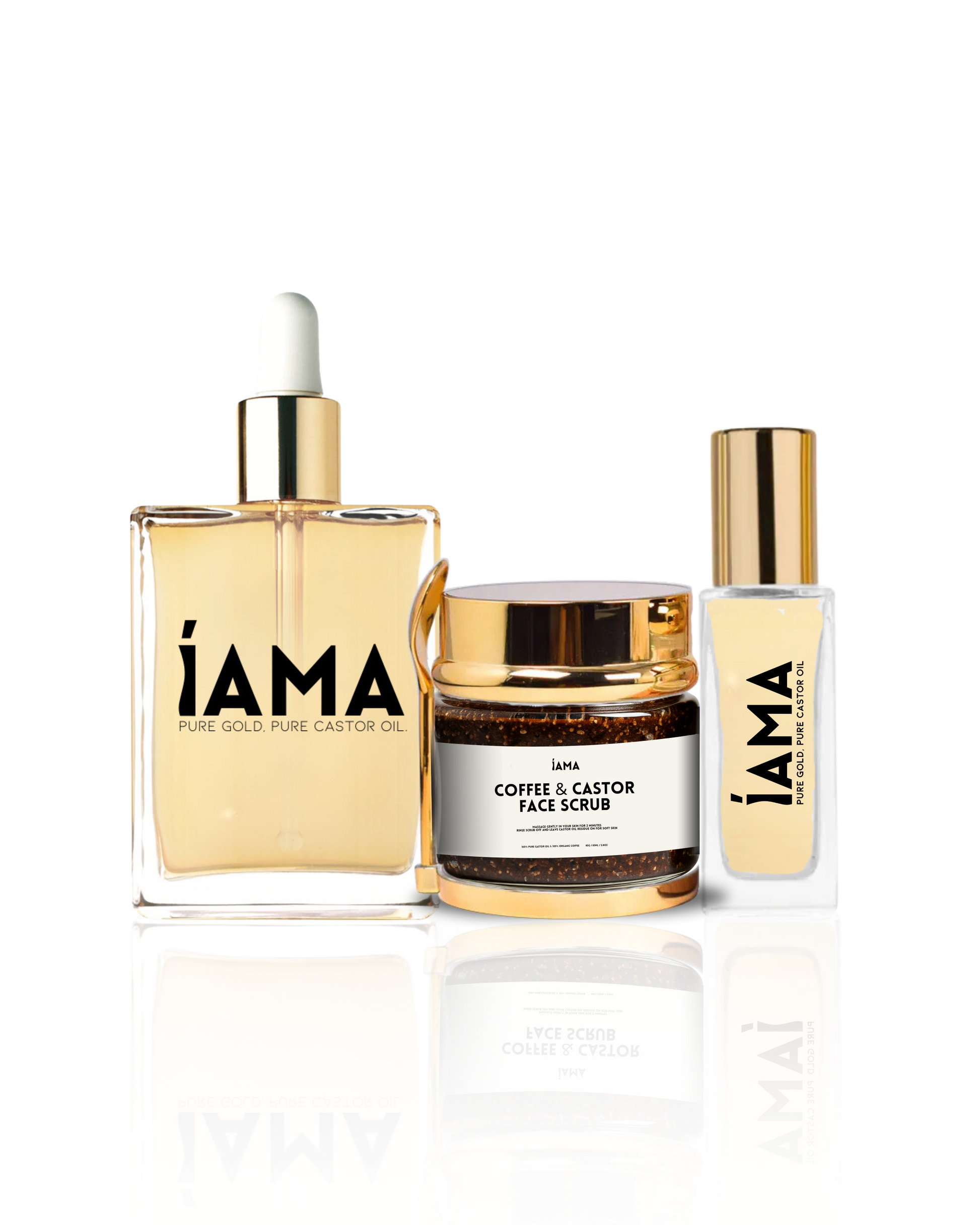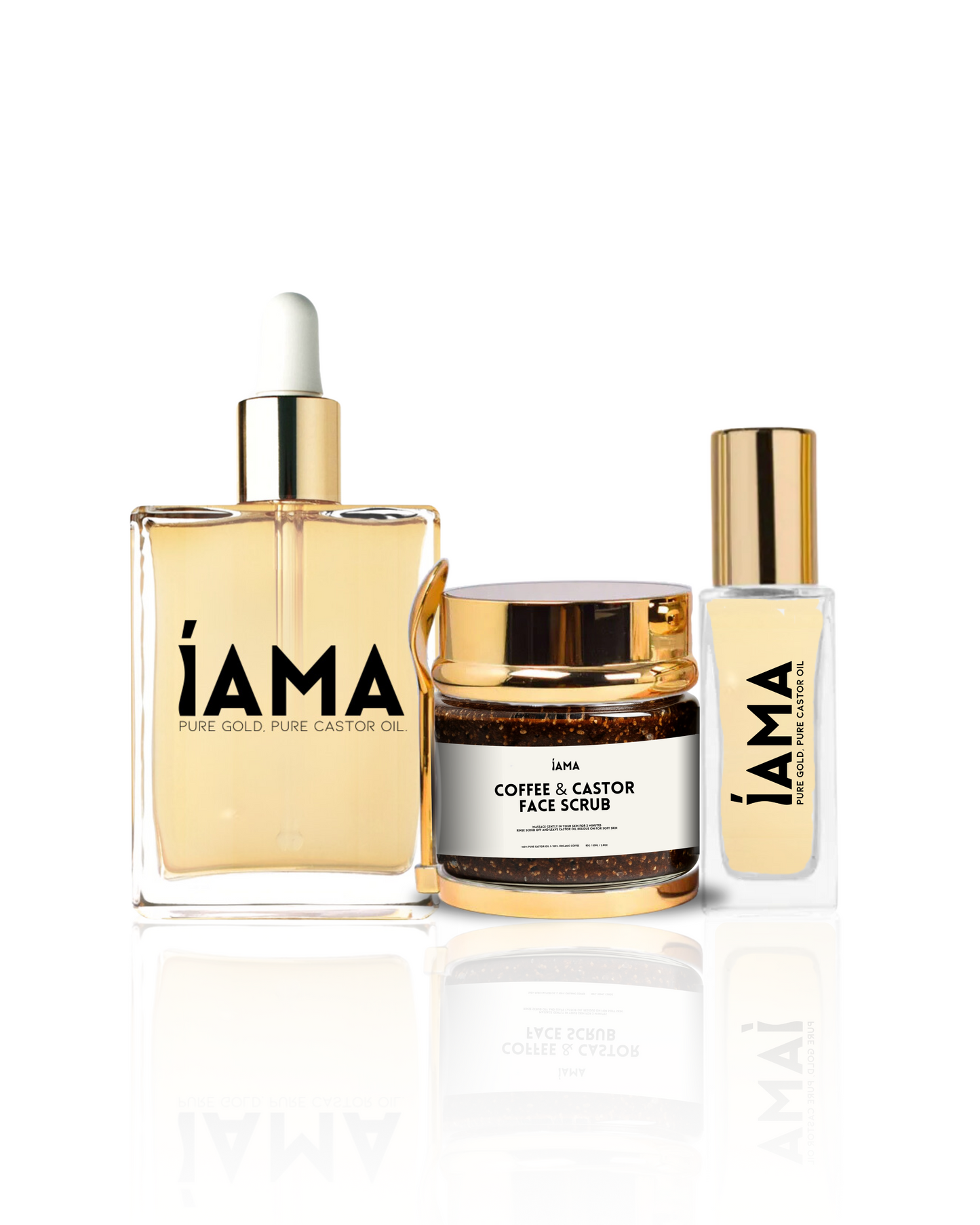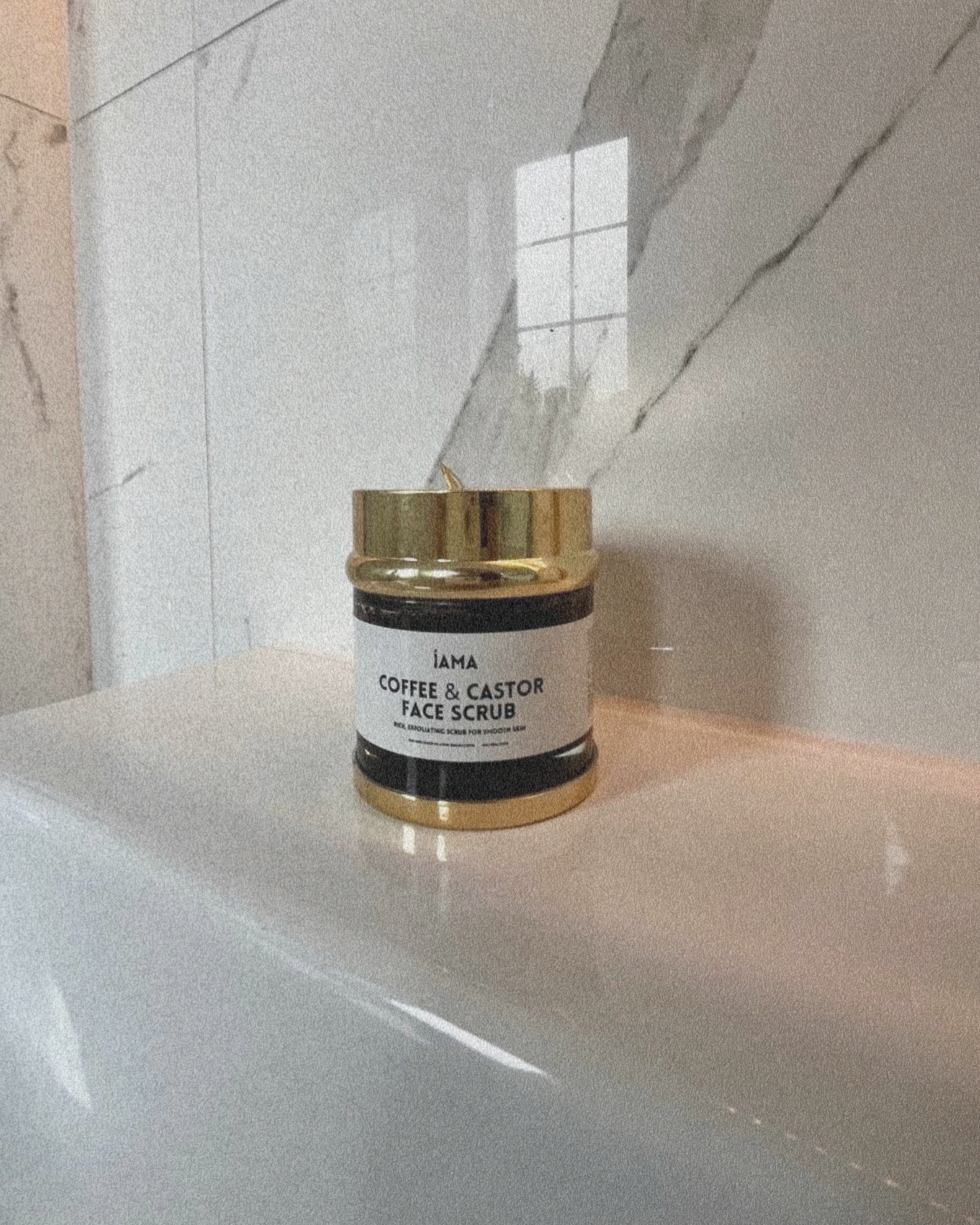When it comes to holistic wellness, the lymphatic system is often overlooked compared to organs like the heart or liver. Yet this delicate network is vital—it helps clear toxins, transport nutrients, and strengthen the immune system.
One natural remedy that’s gaining recognition for supporting lymphatic health is castor oil.
Research backs this up: a study in the Journal of Naturopathic Medicine found that patients using castor oil packs experienced noticeable improvements in lymphatic function, including reduced swelling and enhanced detoxification. Similarly, a study in the Journal of Ethnopharmacology highlighted the anti-inflammatory power of ricinoleic acid—castor oil’s key component—which helps ease lymphatic congestion and promote healthy fluid movement.
In this blog, we’ll explore how IAMA Castor Oil can naturally support your lymphatic flow, aid detoxification, and contribute to overall wellbeing.
The Importance of Your Lymphatic System
Your lymphatic system is a crucial component of your body's immune and circulatory systems.
Here are several reasons why it is so important:
1. Immune Function
The lymphatic system plays a vital role in the immune response. It produces and transports lymph, a fluid that contains white blood cells, which help defend the body against infections and diseases. In the context of cancer, the lymphatic system can be a pathway for cancer cells to spread (metastasize) from the primary tumor to other parts of the body.
2. Fluid Balance
It helps maintain fluid balance in the body by collecting excess fluid from tissues and returning it to the bloodstream. This prevents swelling and helps regulate blood pressure.
3. Nutrient Absorption
The lymphatic system is essential for the absorption of fats and fat-soluble vitamins from the digestive system. It transports these nutrients to the bloodstream, where they can be utilized by the body.
4. Detoxification
By filtering out toxins, waste products, and other unwanted materials from the lymph fluid, the lymphatic system helps cleanse the body and supports overall health.
5. Transportation of Immune Cells
The lymphatic vessels transport immune cells throughout the body, ensuring that they can quickly reach areas of infection or injury. Cancer treatments, particularly surgeries that involve lymph node removal or radiation therapy, can lead to lymphedema, a condition characterized by swelling due to lymph fluid accumulation. This can occur in the arms, legs, or other areas depending on the lymph nodes affected.
6. Support for Circulatory System
The lymphatic system works alongside the circulatory system to maintain fluid levels and facilitate the movement of fluids throughout the body.
10 Signs Your Lymphatic system is blocked

A blocked lymphatic system can lead to various health issues, as it impairs the body's ability to detoxify and maintain fluid balance.
Here are ten signs that may indicate your lymphatic system is not functioning properly:
1. Your face or body looks swollen and bloating
Unexplained swelling in areas such as the arms, legs, or abdomen can indicate fluid buildup due to lymphatic blockage.
2. You Are Often Sick or Get Infections
A compromised lymphatic system can weaken your immune response, making you more susceptible to infections and illnesses.
3. You Always Feel Tired
Persistent fatigue or low energy levels may result from the body's inability to detoxify and manage waste effectively.
4. You have Constant Skin Issues
Conditions like rashes, acne, or other skin irritations can occur when toxins build up in the body.
5. You have IBS or Digestive Problems
Issues such as bloating, constipation, or irregular bowel movements may arise if the lymphatic system is not functioning well.
6. You're Young but You have Joint Pain
Inflammation and swelling in the joints can be a sign of lymphatic congestion, leading to discomfort and pain.
7. You have Poor Circulation and Are Always Cold
Poor circulation due to lymphatic blockage can lead to cold hands and feet, as blood flow may be compromised.
8. You Weight Gain for No Reason or Have Difficulty Losing Weight
An inefficient lymphatic system can hinder metabolism and fat breakdown, making weight management challenging.
9. You feel Moody or Anxious
A buildup of toxins can affect mental clarity and mood, leading to feelings of anxiety or depression.
10. You have Bad Breath or Body Odor
An overloaded lymphatic system can contribute to the accumulation of toxins, which may manifest as unpleasant odors
Why Women Experience Lymphatic Congestion More Often

Lymphatic congestion can affect anyone, but there are several reasons why as women, we may experience it more frequently than men:
-Hormonal Fluctuations: Women experience significant hormonal changes throughout their lives, particularly during menstruation, pregnancy, and menopause. These fluctuations can affect fluid retention and circulation, potentially leading to lymphatic congestion.
-Body Composition: Women generally have a higher percentage of body fat compared to men, which can influence lymphatic function. Fat tissue can produce inflammatory substances that may contribute to lymphatic congestion.
-Breast Tissue: The lymphatic system plays a crucial role in draining lymph fluid from breast tissue. Conditions such as fibrocystic breast disease or breast surgery can lead to lymphatic congestion in women.
-Pregnancy: During pregnancy, the body undergoes numerous changes, including increased blood volume and hormonal shifts. These changes can put extra pressure on the lymphatic system, leading to swelling and congestion, particularly in the legs.
-Tight Clothing and Footwear: Women often wear tighter clothing and high-heeled shoes, which can restrict circulation and lymphatic flow, especially in the lower body.
-Lifestyle Factors: Certain lifestyle factors that may be more prevalent among women, such as prolonged sitting (e.g., at a desk or while commuting) or inadequate physical activity, can contribute to lymphatic congestion.
-Skin Care and Beauty Products: As discussed earlier, women tend to use a variety of beauty and skincare products, which may contain harmful chemicals that can affect lymphatic health.
-Genetic Factors: There may be genetic predispositions that affect lymphatic function differently in men and women, although more research is needed in this area.
How Castor Oil Can Support Your Lymphatic System

Castor oil can support lymphatic drainage and detoxification thanks to its unusually high content of ricinoleic acid, a fatty acid with anti-inflammatory and circulation-boosting properties. When applied topically in a castor oil pack, the oil penetrates the skin and stimulates lymphocyte activity, which helps move lymph fluid more effectively. Since the lymphatic system doesn’t have its own pump, this stimulation is important for clearing waste, reducing swelling, and improving overall flow.
At the same time, ricinoleic acid helps calm inflammation by lowering the activity of pro-inflammatory compounds like prostaglandins and cytokines. This reduction in tissue irritation eases congestion in the lymph nodes and surrounding tissues, making it easier for the body to flush out toxins and excess fluids. Combined with the gentle heat often used during castor oil treatments, circulation improves even further, enhancing detoxification and supporting a stronger, more balanced immune system.
Castor Oil for Lymphatic Drainage

Castor Oil Massage: Gently massaging castor oil onto areas of the body where lymphatic congestion is suspected can stimulate lymph flow. Focus on your lymph nodes and breasts (picture above). Use circular motions and work towards the heart, which helps encourage drainage.
Castor Oil Packs: A popular method for lymphatic support, castor oil packs involve soaking a piece of cloth in warm castor oil and placing it on the skin over areas like the abdomen or lymph nodes. Cover the cloth with plastic wrap and apply a heating pad or hot water bottle on top for about 30-60 minutes. This can help enhance absorption and promote relaxation.
Bath Soak: Adding castor oil to a warm bath can provide a soothing experience while promoting lymphatic drainage. Mix a few tablespoons of castor oil into the bathwater and soak for 20-30 minutes. This method allows for the oil to be absorbed through the skin while you relax.
Dry Brushing with Castor Oil: One of my favourites is incorporating IAMA castor oil into your dry brushing routine. Before you begin, apply a small amount of castor oil to your skin. Use a natural bristle brush to gently brush the skin in upward strokes towards the heart. This technique can help stimulate your circulation and lymph flow.
Ingestion: While this should be approached with caution and under the guidance of a healthcare professional, some people choose to ingest small amounts of castor oil for its laxative properties. This can help promote immediate detoxification, which indirectly supports lymphatic health. Always consult a healthcare provider before ingesting castor oil.
Facial Massage: If you're looking to support lymphatic drainage in your neck and face, you can use IAMA castor oil as part of your facial massage / gua sha routine. Apply a few drops to your fingertips and gently massage in upward strokes, focusing on areas like the jawline and cheeks.
Hydration and Nutrition: While not a direct application, maintaining proper hydration and a balanced diet rich in antioxidants can support the lymphatic system. Consider incorporating castor oil into your diet through cooking or as a salad dressing (in moderation), as it is a healthy fat source
Where to Apply Castor Oil For Self Massage & Lymphatic Drainage

When using castor oil for self-massage and lymphatic drainage, specific areas of the body can benefit the most from its application. Here are key locations to focus on:
Your abdomen: Mesenteric lymph nodes are located in the abdominal cavity, helping to drain lymph from the intestines and other abdominal organs. Gently massaging castor oil in circular motions around the belly can help stimulate lymph flow and support digestion.
Your armpits: Axillary lymph nodes are found in your armpit region. Applying castor oil here and gently massaging can promote lymphatic drainage from the upper body.
Your Neck and Jawline: Cervical lymph nodes are located in the neck, and submandibular lymph nodes are found beneath the jaw. Applying castor oil and massaging from the jawline down to the collarbones can help encourage lymphatic flow and reduce tension. Click here to read more about castor oil and thyroid health.
Behind Your Knees: Your Popliteal lymph nodes are situated behind the knees. Use long, upward strokes towards the heart, focusing on areas like the thighs and behind the knees, where lymph nodes are located.
Inner Thighs: The feet and ankles can also benefit from castor oil application. Massaging these areas can help improve circulation and promote lymphatic drainage throughout the lower extremities.
Back of neck: Applying castor oil to the back of your neck can also be beneficial, especially if you experience tension or discomfort. Gently massaging this area can help alleviate tightness and support lymphatic flow.
Some Tips for Application:
- Warm the Oil: For better absorption and a more soothing experience, consider warming the castor oil slightly before application.
- Use Gentle Pressure: When massaging, use gentle pressure and rhythmic strokes to stimulate lymphatic flow without causing discomfort.
- Incorporate Breathing: Pair your massage with deep, mindful breathing to enhance relaxation and promote a sense of well-being.
Why You Should Stay Hydrated when using Castor Oil for Lymphatic Drainage
Hydration is essential when using castor oil for lymphatic drainage, as it enhances the oil's effectiveness and supports the body’s natural detoxification processes.
When you’re well-hydrated, your lymphatic system can function optimally, allowing lymph fluid to flow freely and efficiently remove toxins from the body. Adequate water intake also helps to improve skin absorption of the oil, maximizing its benefits during topical applications or castor oil packs.
Additionally, staying hydrated reduces inflammation and promotes overall circulation, creating an ideal environment for the lymphatic system to thrive.
Misconceptions about using Castor Oil for Lymphatic Drainage
Here are five common misconceptions about castor oil and its use for lymphatic drainage, along with clear explanations to help educate your audience:
-
Misconception: Castor oil is just a laxative.
While castor oil is well-known for its strong laxative properties due to ricinoleic acid, its benefits extend beyond digestion. Castor oil is also recognized for its anti-inflammatory and analgesic properties, making it effective for promoting lymphatic drainage and supporting overall wellness when used topically.
-
Misconception: You can use any castor oil for lymphatic drainage.
Actually, not all castor oils are created equal. It’s important to choose cold-pressed, organic castor oil like IAMA to ensure that it retains its beneficial properties and is free from harmful chemicals or additives. This type of castor oil is more effective for therapeutic uses, including lymphatic support.
-
Misconception: Castor oil can cure lymphatic diseases
While castor oil may support lymphatic health and promote drainage, it is not a cure for lymphatic diseases or conditions like lymphedema. It should be viewed as a complementary approach rather than a replacement for medical treatment. Always consult with a healthcare professional for proper diagnosis and treatment.
-
Misconception: Using castor oil is messy and inconvenient.
While castor oil can be thick and sticky, there are various methods to use it that can minimize mess. For example, using castor oil packs or incorporating it into a massage routine can be done in a controlled manner. Additionally, many people find the benefits outweigh any minor inconvenience.
-
Misconception: Castor oil is unsafe for everyone.
While there are some safety considerations, castor oil is generally safe for topical use for most people. However, individuals with specific allergies, skin conditions, or those who are pregnant should consult a healthcare provider before use. By following safety guidelines, most people can enjoy the benefits of castor oil without adverse effects.
Safety Precautions and Considerations for Using Castor Oil for Lymphatic Drainage
Always perform a patch test on a small area of skin to check for any allergic reactions before applying it more broadly.
If you have any pre-existing medical conditions, particularly gastrointestinal issues, or are pregnant or breastfeeding, consult a healthcare professional before using castor oil, as it can have strong effects.
Additionally, avoid using castor oil on broken or irritated skin, as this may exacerbate the condition.
Lastly, be mindful of the quantity used; a little goes a long way, and excessive application can lead to skin irritation. By following these precautions, you can safely enjoy the benefits of castor oil for lymphatic drainage.
iAMA is the home of pure gold, pure Castor Oil. Join the journey today.
Shop Castor Oil gold www.iamawellness.com
Contact us by emailing contact@iamawellness.com
Follow us on Instagram @iamawellness






